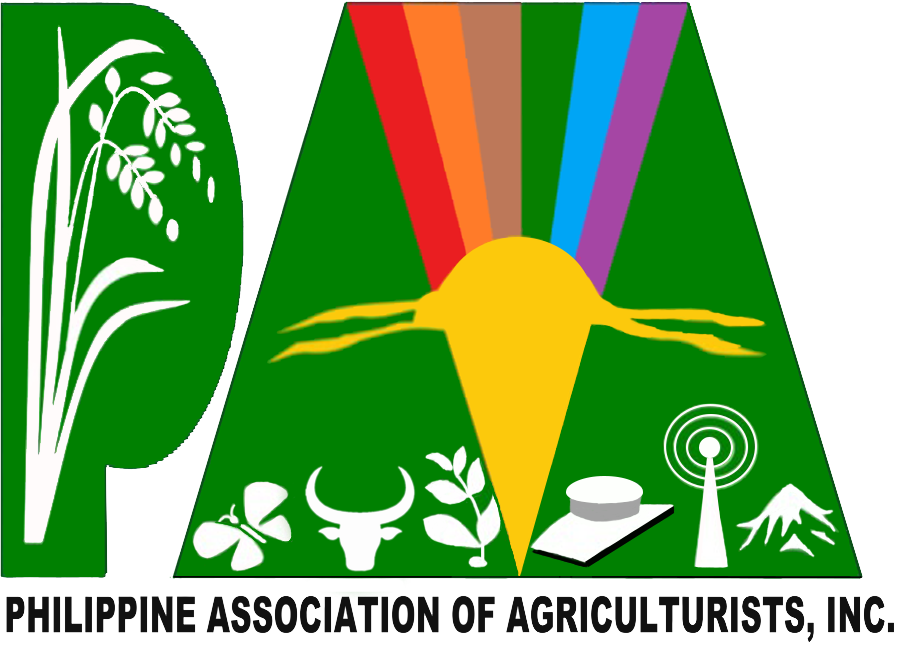Experts Share Insights for the Plenary and Learning Skills Session
Leading experts from across the agricultural sector convened on stage for the plenary and learning skills sessions at the 𝟏𝟐𝐭𝐡 𝐏𝐡𝐢𝐥𝐢𝐩𝐩𝐢𝐧𝐞 𝐀𝐬𝐬𝐨𝐜𝐢𝐚𝐭𝐢𝐨𝐧 𝐨𝐟 𝐀𝐠𝐫𝐢𝐜𝐮𝐥𝐭𝐮𝐫𝐢𝐬𝐭𝐬, 𝐈𝐧𝐜. (𝐏𝐀𝐀) 𝐍𝐚𝐭𝐢𝐨𝐧𝐚𝐥 𝐂𝐨𝐧𝐠𝐫𝐞𝐬𝐬 𝐚𝐧𝐝 𝟐𝟎𝟐𝟓 𝐏𝐡𝐢𝐥𝐢𝐩𝐩𝐢𝐧𝐞 𝐀𝐠𝐫𝐢𝐜𝐮𝐥𝐭𝐮𝐫𝐢𝐬𝐭𝐬’ 𝐒𝐮𝐦𝐦𝐢𝐭, 28-31 July 2025.
The first Plenary Session painted a landscape on how agricultural transformation is happening in the glocal scenes. DA Regional Director Engr. Albert Barogo, who represented Usec. Cheryl Marie N. Caballero provided insights on the persistent challenges facing the Philippine agricultural sector and the efforts of the Department of Agriculture to address such limitations.
Plenary Session 2 focused on the ecological dimension, featuring Mr. Arnold Grant S. Belver and Ms. Agnes Catherine T. Miranda who elaborated the outcomes of the National Climate Change Action Plan (NCCAP 2011-2028). They discussed initiatives like the climate-smart industries, and adaptation and mitigation approaches in agriculture. Such innovations integrate climate resilience into agricultural practices to secure food systems against environmental impacts.
Plenary Session 3 shifted the focus from production to adoption of sustainable practices. Dr. Celia DR. Medina, a seasoned IPM academic, explored the future of farming by emphasizing a change in the IPM framework from an interdisciplinary pesticide management to a truly integrated pest management. Dr. Arnel N. del Barrio, an animal scientist, compared international efforts in climate-resilient animal production systems. A promising technology that he is currently developing is the use of Artificial Intelligence in Artificial Insemination or Ai for AI.
Moving beyond the socio-cultural dimension of transformative agriculture, Plenary Session 4 invited experts from the grassroots level. Farmer-scientist Mr. Oligario F. Paredes, Jr. shared his insights as a transformed farmer where his talk focused on the marriage of traditions and modernization in agricultural practices. With her experience at the DA – Agricultural Training Institute Region IV, Ms. Sherylou C. Alfaro was able to bring light on how agriculturists in the Philippines can serve as conduits for a transformative future in agricultural extension. Lastly, Dr. Jaime A. Manalo IV posed a major question on how the new-generation farmers can be supported through transformative agriculture. He is confident that addressing the scaling trajectory of technological innovations in farming will assist this transformation.
An economic outlook on transformative agriculture was extensively discussed during Plenary Session 5 where SEARCA Center Director Dr. Mercedita A. Sombilla made a revisit on the policies and institutional support for agricultural resilience and sustainability. Dr. Moeko Saito-Jensen’s talk touched base on indicators for the circular economy in the Philippines in support of transformative agriculture. Industry insights from Mr. Bimsy V. Mapa and Engr. Angel P. Puentespina covered the discussion on market access, value chains, and economic diversification, with emphasis on locally-sourced inputs, as components of transformative agriculture.
A Special Plenary Session on the Association’s policy advocacy through strengthening legislative support of RA 12215 or the Philippine Agriculturists Act was presented by Dr. Karen Salandanan-Bautista. This solidifies the position of the Association in professionalizing agriculture as a career, protecting the profession through regulatory laws, and elevating the dignity of our fellow registered agriculturists from the academe, local government, and industry sector.
Additionally, three learning sessions were held alongside the plenary sessions of the 12th PAA National Congress, organized through the initiatives of our sectoral and industry partners. These sessions concentrated on the role of the DA-Agricultural Training Institute in transformative agriculture, the ongoing efforts for a resilient and sustainable sugarcane and coconut-based food system, and emerging trends in organic agriculture and slow food concept.
The PAA is hopeful for the sustained partnership with industry experts, thought leaders, and practicing agriculture professionals for the success of future PH Agriculturists' Summit.








